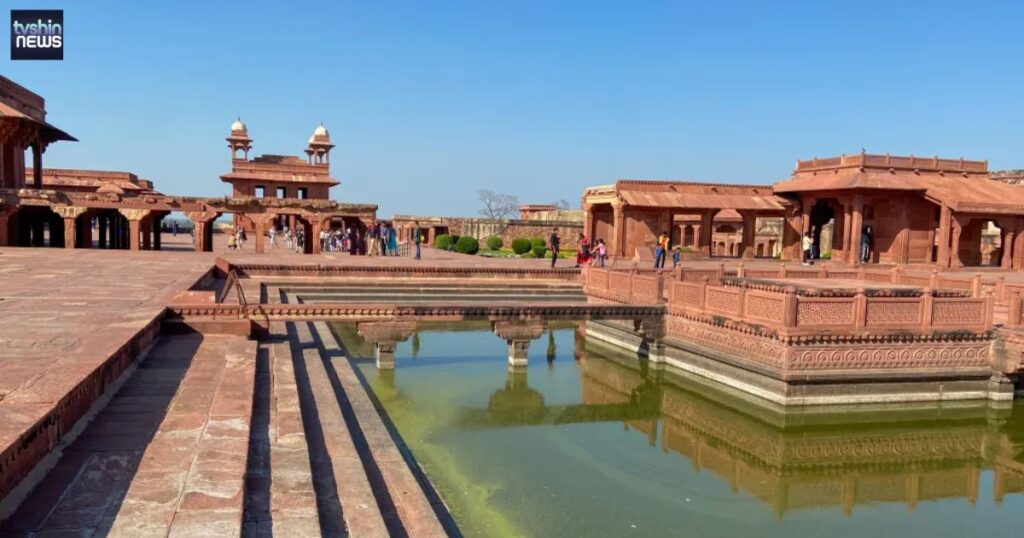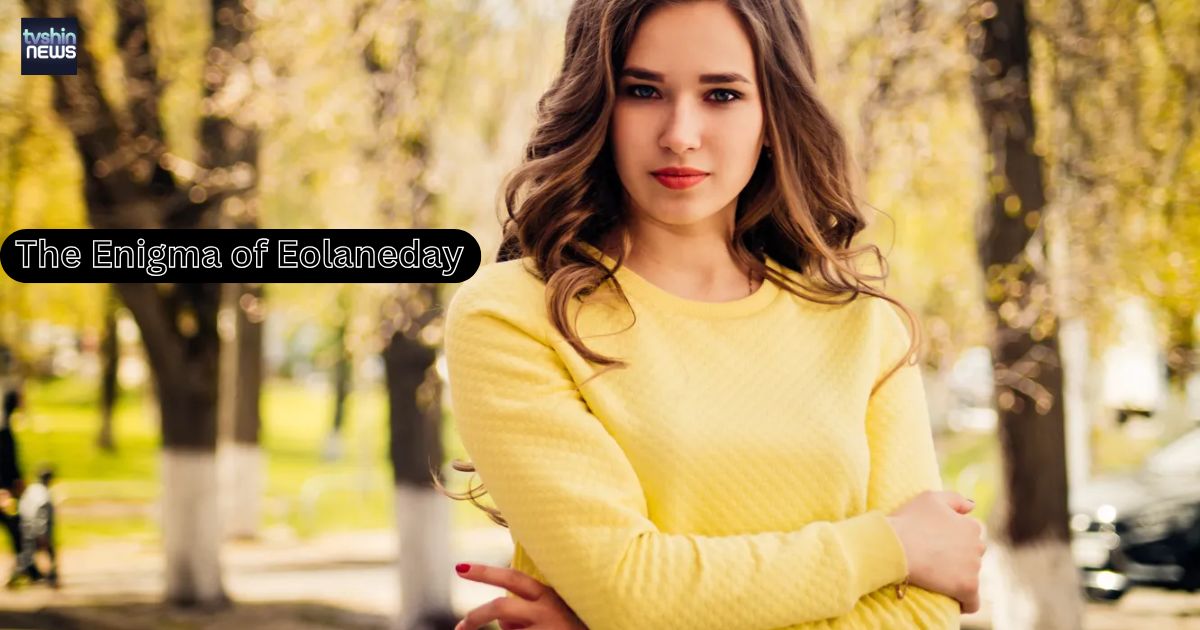Eolaneday is a hidden gem among the many global festivals and celebrations focusing on renewal and personal growth.
This ancient tradition is more than just a spiritual reset—it celebrates life cycles, new beginnings, and the collective journey toward self-discovery and healing.
While many traditions have set dates and rituals, Eolaneday stands out for its flexibility and adaptability, making it a global tradition celebrated by diverse people.
The ceremony has evolved over centuries, blending spiritual cleansing and ritualistic practices into a significant experience for participants.
This article delves into the mystery of Eolaneday, exploring its origins, practices, and profound impact on communal growth.
Whether you are familiar with this tradition or have heard about it for the first time, you will discover why Eolaneday is essential in cross-cultural celebrations.
What Exactly Is Eolaneday?
At its core, Eolaneday celebrates renewal and transitions, where participants engage in ceremonial rituals that symbolize personal and collective transformation. The name carries deep significance, rooted in the mythological figure of Aeolus, the Greek god of winds.
The wind symbolizes the flow of life—constantly shifting, unpredictable, and capable of bringing both calm and storm. Eolaneday, much like the wind, represents a moment of change, a time for individuals and communities to embrace new beginnings and symbolic cleansing.
Unlike other seasonal or spiritual festivals, Eolaneday is not tied to a fixed date on the calendar. Its timing varies based on the community’s needs and the collective sense of when a spiritual reset is required.
The tradition is marked by wind-based rituals, communal feasts, and reflection ceremonies designed to create a profound sense of personal renewal and community spirit.
A Celebration Without Borders
One of the most remarkable aspects of Eolaneday is its inclusivity and adaptability. While some festivals are confined to specific regions or cultures, Eolaneday has evolved into a global tradition, celebrated in various forms worldwide.
Whether in remote villages or bustling urban centers, the essence of Eolaneday remains the same—a time for the community to come together, celebrate life, and prepare for the challenges ahead.
Eolaneday is celebrated uniquely in different parts of the world, yet the core values remain intact.
In some cultures, it might be a spiritual festival characterized by wind rituals and cleansing ceremonies, while in others, it could involve symbolic gestures like releasing balloons into the sky or gathering for a communal feast.
The unifying thread emphasizes collective growth and mindful transitions regardless of the specific customs.
The Global Reach of Eolaneday
Eolaneday’s flexibility of tradition means it can be tailored to suit the cultural context of the community celebrating it.
From the burning ceremony in the Andes, where people release their emotional burdens into a fire, to the boating races in Southeast Asia, which symbolize the journey of life, Eolaneday adapts to its environment, drawing on local customs and practices to create a celebration that is both meaningful and inclusive.
Whether practiced in the serene countryside or within the hustle and bustle of modern cities, Eolaneday unites people with a shared purpose: to honor life’s transitions, embrace spiritual cleansing, and celebrate the symbol of change.
The Mystery of Its Name
The name “Eolaneday” is derived from Aeolus, the Greek god of winds, which ties into the festival’s core themes of change and renewal.
Just as the wind is ever-changing, Eolaneday invites participants to reflect on the winds of their lives—how they’ve shifted, where they’ve carried them, and where they hope to go.
The idea of the wind as a force of nature influencing change is central to the symbolic rituals performed during the celebration. People often engage in practices such as flying kites, watching wind chimes, or even participating in outdoor activities like hiking or sailing, all of which symbolize the flow of life’s journey.
The name Eolaneday, therefore, becomes a powerful reminder of the ever-evolving nature of life and the importance of embracing change.
The Customary Rituals of Eolaneday

Eolaneday is not just a time for reflection; it is also a profoundly ceremonial occasion. The ritual practices associated with Eolaneday are centered around the themes of cleansing, renewal, and communal bonding.
Here’s an in-depth look at the customary rituals that make this festival so unique:
The Cleansing Rituals
One of the central features of Eolaneday is the spiritual cleansing that participants undergo. This can take many forms, but it always focuses on releasing negative energy and welcoming a fresh start. Common practices include:
- Symbolic cleansing through water:
People might bathe in rivers or lakes to wash away the past year’s struggles and cleanse themselves for the year ahead.
- Burning ceremonies:
Similar to the burning ceremony practiced in many cultures, this ritual involves writing down one’s burdens or regrets on paper and setting them on fire. This act symbolizes releasing negative energy, allowing participants to start anew.
The Communal Feast
As with many seasonal rituals, Eolaneday emphasizes the importance of community bonding. A central aspect of the festival is the communal feast, where participants gather to share a meal made from locally sourced, homemade ingredients.
The idea behind the feast is to nourish not just the body but also the spirit, creating a deep sense of connection among all those present.
Sharing food strengthens the community spirit and serves as a reminder of the collective nature of the celebration.
Reflection and Symbolic Acts
The final aspect of the ritual is a moment of reflection. As the day draws to a close, many Eolaneday celebrations culminate in a quiet moment of meditation, where participants come together to reflect on the changes they have undergone, individually and collectively.
This is often followed by symbolic acts such as lighting candles, releasing lanterns, or tying ribbons to trees as a gesture of hope and renewal.
How Does Eolaneday Compare to Modern Traditions?

While many modern traditions focus on personal growth or renewal, few offer the depth of ritual practices and community involvement found in Eolaneday.
Tradition’s flexibility and ability to adapt to different cultures make it a mindful transition that can be celebrated by people from all walks of life.
Mindful Transition
In contrast to the fast-paced, commercialized nature of modern holidays like New Year’s Eve, Eolaneday encourages a more thoughtful approach to renewal.
Rather than simply making resolutions or celebrating with fireworks, Eolaneday invites participants to take a step back, reflect on their lives, and engage in symbolic rituals with deep personal meaning.
This sense of mindful transition makes Eolaneday stand out as a celebration that genuinely encourages personal renewal.
Inclusivity and Adaptability
Another critical feature of Eolaneday is its inclusivity. Unlike many other spiritual holidays tied to specific religions or regions, Eolaneday welcomes everyone, regardless of their background or beliefs.
Its adaptable traditions make it accessible to people from all walks of life, fostering a sense of unity and shared purpose.
Whether you are celebrating with a large group or in a smaller, more intimate setting, Eolaneday brings people together to honor life’s transitions.
FAQs About Eolaneday
Is Eolaneday a religious holiday?
No, Eolaneday is not a religious holiday. While it has spiritual significance, it is not tied to any specific faith or religious tradition.
Can anyone celebrate Eolaneday?
Absolutely! Eolaneday is an inclusive tradition that can be celebrated by people of all backgrounds, whether religious, secular, or somewhere in between.
How long does Eolaneday last?
The length of Eolaneday celebrations can vary. Some communities celebrate it for a single day, while others may extend the festivities over a weekend, depending on local customs.
Do you need unique materials to celebrate Eolaneday?
No unique materials are required. Participants are only willing to engage in the ceremonial rituals and the spirit of personal renewal.
Is Eolaneday celebrated the same way everywhere?
Eolaneday adapts to different cultural contexts, so its rituals may vary from place to place. However, the core themes of communal renewal and transition rituals remain the same.
Conclusion: Why Eolaneday Matters
Eolaneday is a unique and profound celebration that offers more than just a ritualistic reset. It is a tradition of renewal that encourages participants to reflect on the past, embrace change, and welcome new beginnings.
Its flexibility, inclusivity, and emphasis on community bonding make it a celebration that transcends borders and cultures.
Whether seeking a spiritual reset, a new beginning, or a deeper connection with your community, Eolaneday offers something for everyone.
As we move further into a fast-paced, constantly changing world, traditions like Eolaneday remind us of the power of reflection rituals and symbolic cleansing.
They invite us to pause, reconnect with ourselves and each other, and celebrate the symbol of change that is a constant part of life. Embracing Eolaneday might be the perfect way to introduce more meaning and balance into your life.








